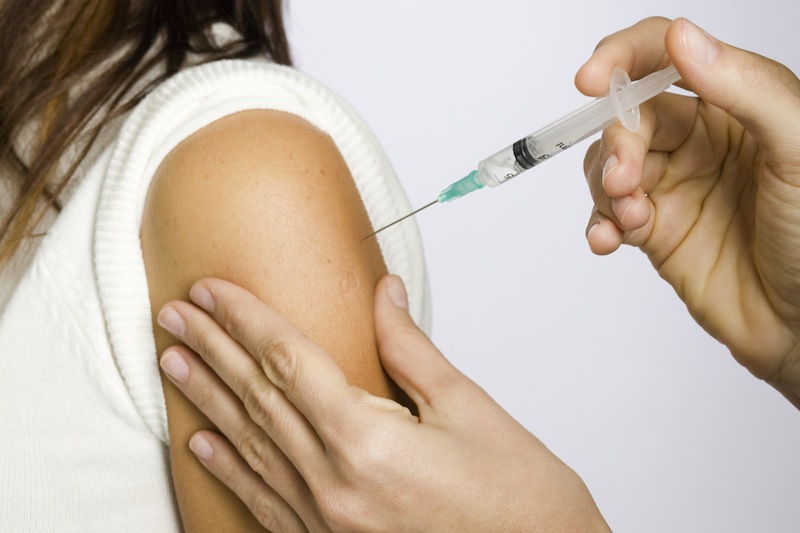Ebola Vaccines: Here's a Look at the 3 Front-Runners

Get the world’s most fascinating discoveries delivered straight to your inbox.
You are now subscribed
Your newsletter sign-up was successful
Want to add more newsletters?

Delivered Daily
Daily Newsletter
Sign up for the latest discoveries, groundbreaking research and fascinating breakthroughs that impact you and the wider world direct to your inbox.

Once a week
Life's Little Mysteries
Feed your curiosity with an exclusive mystery every week, solved with science and delivered direct to your inbox before it's seen anywhere else.

Once a week
How It Works
Sign up to our free science & technology newsletter for your weekly fix of fascinating articles, quick quizzes, amazing images, and more

Delivered daily
Space.com Newsletter
Breaking space news, the latest updates on rocket launches, skywatching events and more!

Once a month
Watch This Space
Sign up to our monthly entertainment newsletter to keep up with all our coverage of the latest sci-fi and space movies, tv shows, games and books.

Once a week
Night Sky This Week
Discover this week's must-see night sky events, moon phases, and stunning astrophotos. Sign up for our skywatching newsletter and explore the universe with us!
Join the club
Get full access to premium articles, exclusive features and a growing list of member rewards.
A vaccine against the Ebola virus is urgently needed, and several companies are racing to test their experimental vaccines in an effort to halt the spread of the deadly viral disease. Ebola has sickened more than 20,000 people in West Africa, and killed at least 8,200, according to the World Health Organization (WHO).
Experts estimate that at least 100,000 doses of vaccine are needed to protect frontline health care workers. And at least 12 million doses would be needed to vaccinate all adults in the three worst-affected countries of Guinea, Liberia and Sierra Leone, according to the WHO. [2014 Ebola Outbreak: Ongoing Coverage of the Viral Epidemic]
Currently, there are three experimental vaccines that look promising, which are licensed to large pharmaceutical companies, and are now being tested in humans in an exceptionally fast timeline. Here is a look at each of these vaccines.
Johnson & Johnson's Ebola vaccine
This vaccine contains modified versions of a human cold virus and the smallpox virus. It also contains bits of Ebola's genetic material that could incite an immune response against the Ebola virus. On Tuesday (Jan. 6), Johnson & Johnson said it had begun administering its vaccine to healthy volunteers in the United Kingdom. This is a Phase 1 clinical trial, meaning that the researchers will test the vaccine on a small number of people to see if it is safe, and to identify potential side effects.
Seventy-two people will participate in this trial, and will receive either the vaccine or a placebo, the company said. The vaccine involves two shots — the first dose of the vaccine aims to prime the immune system, while a second dose given one or two months later acts to boost the immune response.
In earlier experiments of the vaccine conducted in collaboration with the National Institutes of Health (NIH), researchers found that the vaccine protected monkeys against the strain of Ebola known as Zaire, which is causing the current outbreak, the company said in September.
Get the world’s most fascinating discoveries delivered straight to your inbox.
Janssen Pharmaceutical Cos., which is owned by Johnson & Johnson, is developing the vaccine together with Bavarian Nordic. More than 400,000 regimens of the vaccine have been produced that could be used in larger trials by April.
GlaxoSmithKline's vaccine
Another Ebola vaccine, made by GlaxoSmithKline, is further along in development. The results of the Phase 1 trial of this vaccine were published in The New England Journal of Medicine on Nov. 26, and the research showed that the vaccine, which the company developed in collaboration with the NIH, was well-tolerated and appeared effective.
In the trial, 20 healthy adult volunteers in the United States received the vaccine, and they produced antibodies against Ebola virus, the company said.
Now, Glaxo isplanning to test the vaccine in a larger number of people, and the second phase of the trial may start in February in Africa, according to Reuters.
The vaccine, called cAd3-EBO, is made of a harmless cold virus that affects chimpanzees, but is coated with proteins from two strains of the Ebola virus, the Zaire strain and the Sudan strain. [Related: How Do Ebola Vaccines Work?]
Merck's vaccine
The Phase 1 testing of Merck's Ebola vaccine is now back on its feet after hitting a bump in the road. Researchers began a Phase 1 trial of the vaccine, called VSV-ZEBOV, in December, but then stopped the trial when some of the volunteers reported experiencing joint pain.
The symptoms, however, resolved without treatment, according to the University of Geneva hospital in Switzerland, where the trial was taking place. The researchers resumed the trial using a lower dose of the vaccine, the hospital announced Jan. 5.
The VSV-ZEBOV consists of a virus that mainly infects animals, called the vesicular stomatitis virus (VSV). In the vaccine, one gene of VSV has been replaced with the gene that codes for the outer protein of the Zaire Ebola virus, according to the NIH.
The vaccine was developed by researchers at the Public Health Agency of Canada's National Microbiology Laboratory, and has been licensed to NewLink Genetics Corp. in Iowa, and Merck & Co.
Email Bahar Gholipour. Follow Live Science @livescience, Facebook& Google+. Originally published on Live Science.

 Live Science Plus
Live Science Plus










